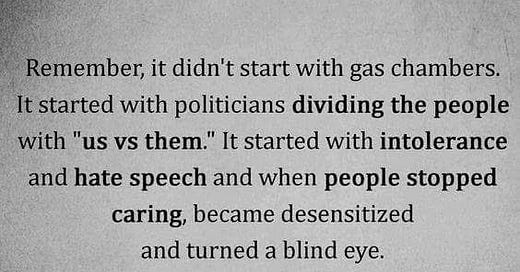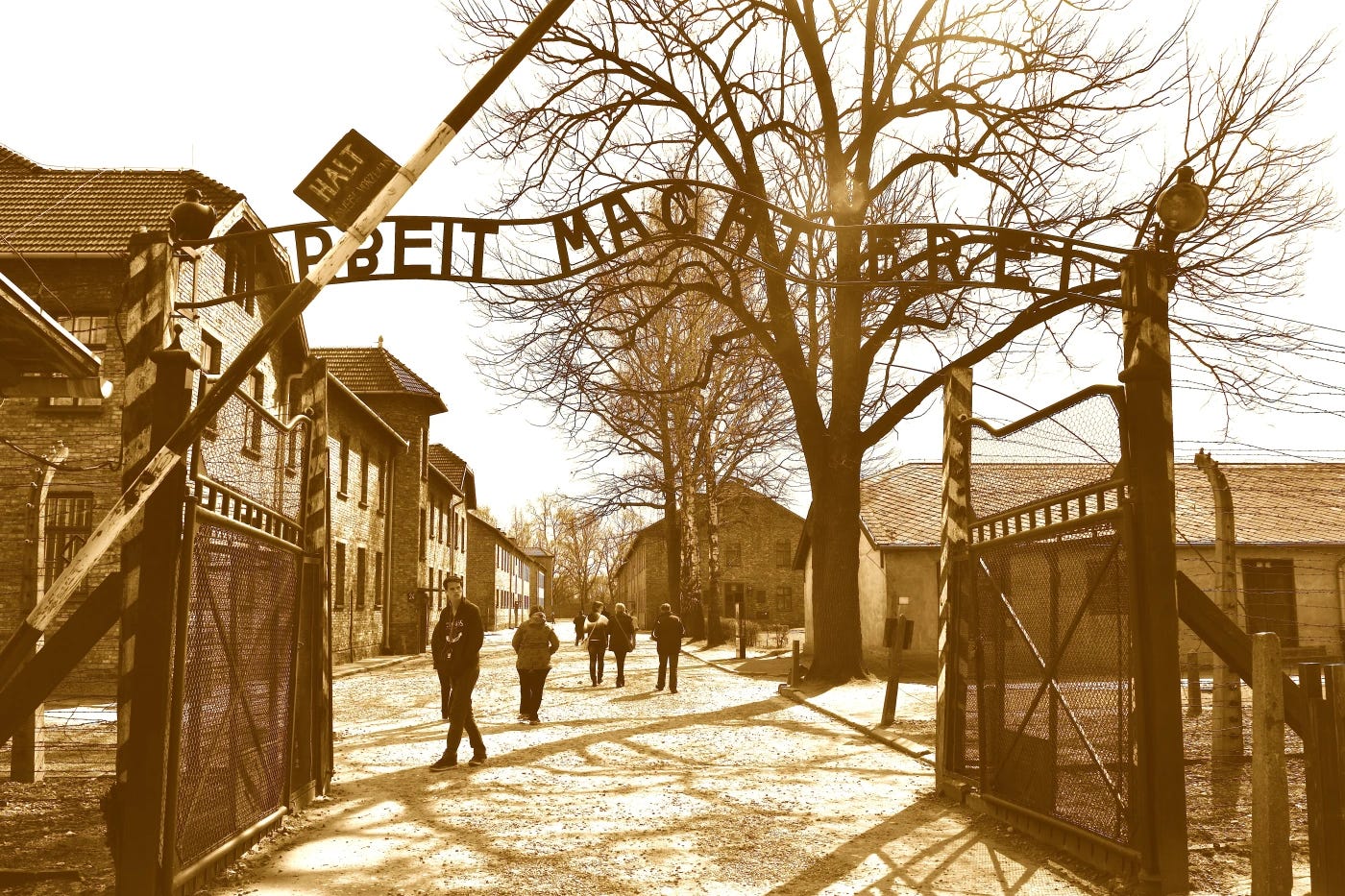After Visiting Auschwitz, Can Life Ever Be the Same?
Holocaust and genocide education are essential for everyone
January 27 is International Holocaust Remembrance Day each year. Various countries choose that day or different days. Texas and some other states declare an entire week for Holocaust remembrance observances in schools. The US Holocaust Memorial Museum lists various days of remembrance, explaining why we remember, resources, and suggested activities. A 2022 Ken Burns’ documentary — what he calls the most important one he will ever make — explores America’s inadequate response to the Holocaust, not to shame Americans but to ask difficult questions about our attitudes toward the peoples of the globe. MORE.
The world was so shocked by the Holocaust that well-intentioned people declared "never again." And yet it happened again in the killing fields of Cambodia in the 1970s, in Bosnia and Rwanda in the 1990s, in Darfur in the first decade of the 21st century, and possibly elsewhere today such as to the Rohingya Muslims of Myanmar and to the Uyghur Muslims of China. See genocideeducation.org and Genocide Watch.
I don’t know if you would say we were privileged, but my wife, son, and I did manage to spend a day at Auschwitz and Buchenwald concentration camps in Poland.
After Visiting Auschwitz, Can Life Be The Same?
Son Alex, 19, at the gates of Auschwitz.
“Work Will Set You Free” is the greeting in German (“Arbeit macht frei“) as you enter the Auschwitz concentration camp, about an hour’s drive from Krakow, Poland.
The most shocking thing I learned from a tour of Auschwitz was how profitable it was, thoughtfully designed to efficiently make money off the forced labor and mass murders of millions of people, not only from their slavery but from reselling their stolen belongings — suitcases, baskets, bowls, clothing, eyeglasses, jewelry, prosthetic legs, and arms — and then, horrifically, turning their hair and skin into sellable merchandise. Indeed, a number of internationally well-known companies that participated in or profited from the machinery of Auschwitz still exist, or the same people reorganized under different company names.
I simply could not take pictures of much of what I saw, including gas chambers and ovens. It seems trivializing to share such obscene images, almost a sacrilege, certainly an example of “the banality of evil.”
To assume basic human responsibility to never forget the horror, we felt it necessary to visit Auschwitz and nearby Birkenau, to bear witness. As one visitor,
Keep reading with a 7-day free trial
Subscribe to Slender Threads / Global Citizens / Public History to keep reading this post and get 7 days of free access to the full post archives.






